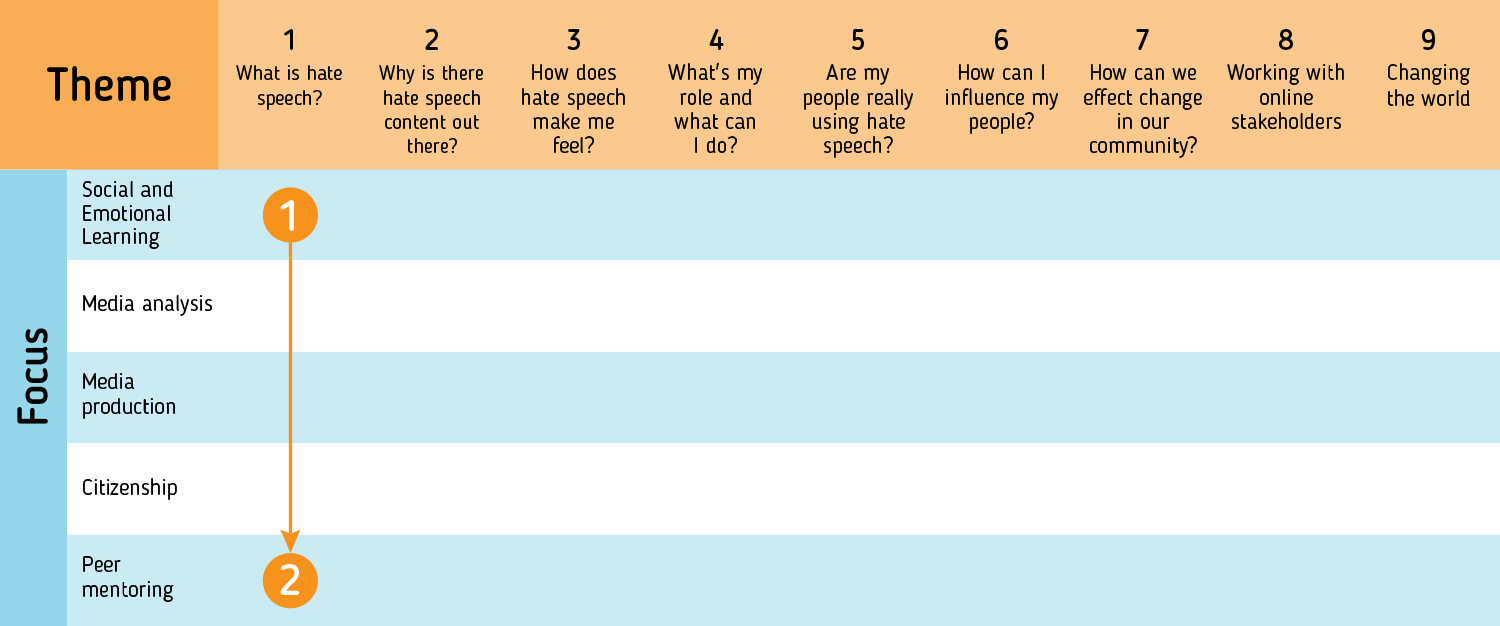Pathway 1: What´s hate speech?
In this section, we suggest a possible pathway you can work through when putting SELMA into practice as part of a peer mentoring scheme. Please note that this is by no means restrictive; SELMA has been designed as an open and flexible framework which you can adapt to the needs, level and interests of the group(s) you work with. The SELMA journey articulated below has been developed for illustrative purposes, to give you a suggested ‘way in’ to the toolkit if you’re not sure where to start. However, we would certainly encourage you to explore the toolkit and use it creatively!

After ensuring that young people are clear on the definition of hate speech, begin with the ‘Theme 1’ warm up activity contained within the ‘Social & Emotional Learning’ focus. Use the guiding questions and RULER matrix activity to encourage learners to reflect on the variety of emotions a person can experience and the relative intensity of pleasant and unpleasant emotions. It is likely that this activity will introduce learners to new vocabulary. Give them the opportunity to absorb these new words and encourage a discussion where young people can relate those new words to their own experiences. After this warm up, run the main activity (‘Matching emotions to hate speech’) designed to support learners to explore the emotional impact that words can have. Use the activity as a launching pad to explore why they expected certain statements to evoke stronger emotional reactions than others, linking this back to the subject of hate speech (for example, the targeting of a protected characteristic).
Once you have completed the activities in the ‘Social & Emotional Learning’ focus, move on to the ‘Peer Mentoring’ focus and start with the second activity, ‘SEL: Breaking down walls’. This is an activity where peer mentors find a communal wall (or similar) in their school, recreate the RULER matrix and invite their peers to place a series of emotion words on the matrix. The activity is an engaging way for peer mentors to share the lessons they learnt from the ‘Social & Emotional Learning’ focus warm up with their peers. By distributing ‘reflection cards’, they also encourage their peers to absorb the new emotional vocabulary learnt and relate it to their own lives. Finally, you can encourage peer mentors to run the first ‘Peer Mentoring’ activity, distributing the ‘Hacking hate’ survey among their year group, collecting responses, and then inputting the data into the dashboard. This is designed to be easy to use, but peer mentors will likely benefit from your support to organise the distribution and collection of surveys as well as in the analysis of results. Don’t forget to encourage peer mentors to think about what they will do with those findings and how this can inform their work.
